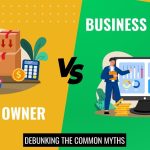Master the seven essential Product Owner skills that will enable you to effectively lead your team, manage stakeholders, and deliver successful products.

The Product Owner position stands essential in achieving product success. They behave as a filtering channel between business representatives and technical developers. Success for the Product Owner depends on the development of multiple competencies. Developing these essential competencies helps to deliver projects without issues while ensuring maximum value delivery.
A Brilliant Product Owner must be adaptable, decisive, and have excellent communication skills when handling Agile methodologies and stakeholder management.
Let us look at some of the key abilities that product owners need and the fundamental importance of their professional accomplishments. The listed Product Owner competencies will aid beginners, and seasoned professionals build expertise that brings value to product management.
Who is a Product Owner?
A Product Owner is an essential figure in Agile development who connects stakeholders to the development team as its core liaison for project success. A Product Owner defines user stories and manages the product backlog. This ensures the final product meets customer needs and business goals.
When Product Owners rank tasks and make informed decisions, they boost product value. This also guides the team to a successful delivery. They are vital. They convert strategic goals into efficient, directed tasks. These tasks maintain the development path.
7 Essential Product Owner Skills You Must Have

1. Strategic Vision and Product Roadmap Planning
The essential trait of a superior Product Owner is their ability to think strategically. The Product Owner needs to unite product vision with business objectives. Establishing organized product plans allows teams to organize their efforts around essential objectives and foremost priorities.
Why It Matters:
- The precise direction of the product becomes achievable through this process.
- Helps stakeholders understand business goals.
- The organization uses these efforts to support what customers require.
Expanding Your Strategic Vision
Product Owners must maintain knowledge about current market developments and industry competition status. The process of engaging with customers, along with market research, enables product visions to improve. Developers can prevent superficial course corrections through proper roadmap definition, which streamlines their work.
2. Communication and Stakeholder Management
Product owners need practical communication skills to work with developers, stakeholders, and customers. The organization achieves a common understanding regarding needs and expectations through well-structured communication channels.
Key Abilities:
- The Product Owner needs to listen actively to grasp business needs.
- Articulating requirements in simple terms.
- Managing stakeholder expectations efficiently.
Improving Communication Skills
To be an exceptional Product Owner, one must simplify complicated concepts into understandable knowledge. Visual tools, including roadmaps, flowcharts, and storyboards, produce better results for product direction communication.
3. Agile and Scrum Expertise
The basic principles of Agile Product Owner skills and Scrum practices form the foundation for which Product Owners must succeed. Fulfilling their role requires Product Owners to manage backlog, complete sprint planning, and facilitate Agile processes.
Benefits of Agile Expertise:
- Enhances collaboration within teams.
- Helps adapt to changing requirements.
- Ensures timely product delivery.
Mastering Agile and Scrum
The successful product owner must complete related certifications and participate in Agile training sessions. The direct involvement in Scrum meetings builds their capacity to handle problems in an agile environment.
4. Decision-Making and Prioritization
Successful product owners need to select solutions using well-informed processes. They make task decisions through an assessment of business worth and customer implications.
Effective Prioritization Techniques:
- The Product Owner follows the MoSCoW method to decide which requirements will be addressed.
- Value vs. Effort analysis.
- Customer feedback-driven prioritization.
Enhancing Decision-Making Skills
Soon after analysis and stakeholder consultation, a Product Owner creates priorities through established frameworks. A study of previous project success and failure results creates improved decision capabilities.
5. Technical Understanding and Data-Driven Insights
A Product Owner must have a basic technical understanding despite not building software. The product management skill decisions require data analytic assessment.
Why Technical Knowledge is Important:
- Helps in discussions with development teams.
- Ensures realistic product expectations.
- Enables data-driven decision-making.
Building Technical Competencies
Complete mastery of software development processes alongside API and user experience knowledge must be developed for an ideal Product Owner. Participating in technical dialogues enhances a person’s credibility and confidence levels.
6. User-centric Mindset and Empathy
A product owner needs to grasp user expectations and their problematic situations. The company produces goods that bring actual advantages to their customers.
How to Develop This Skill:
- Conduct user interviews and surveys.
- Use customer feedback for improvements.
- Running usability assessments helps to boost user usability capabilities.
Strengthening User Empathy
Combining customer journey mapping with persona development and A/B testing enables organizations to approach their products from a customer perspective. Knowledge about practical system use leads to better customer happiness and satisfaction.
7. Leadership and Team Collaboration
Another essential product owner skill is effective leadership. It helps maintain the high-performance levels of workforce groups while keeping them focused on shared objectives. Product owners must develop internal team harmony throughout projects, support their team members’ motivation, and instill positive attitudes.
Key Leadership Traits:
- Empowering team members.
- Resolving conflicts effectively.
- Encouraging continuous learning and improvement.
Becoming an Effective Leader
Great leaders lead by example. Conducting trust building and using encouragement alongside responsibility development helps Product Owners advance team success.
Mastering Product Ownership With ValueX2 Certifications
Product Owner certifications enhance both their professional abilities and professional advancement capabilities. Platforms like ValueX2 offer industry-recognized certifications. The programs develop valuable real-world expertise, which leads to effective product ownership practices.
Why Certifications Matter
- The certification establishes their reliability as a product manager.
- Enhances career prospects.
- Certified candidates get practical experience working with Agile framework methods.
Conclusion
A Brilliant Product Owner needs to master various capacities. The core competencies involve excellent communication skills, proficient backlog management, and strong Agile expertise. Making sound business decisions while effectively handling stakeholders and business acumen are key elements in delivering efficient leadership. The Essential Product Owner skills lead to successful products that advance business expansion.
You can build great products as well as lead teams. You can do this by developing key skills in product leadership. Your growth relies on training your skills with Agile systems. You also need a solid understanding of business operations and technical processes. You can excel at mastering Product Ownership with the right mindset and training. It will help you develop valuable products that please customers.
Frequently Asked Questions (FAQs)
1. What are the most essential skills for a successful Product Owner?
Product leadership demands four essential competencies: strategic vision, communication skills, Agile Product Owner capabilities, and decision-making competence.
The Product Owner needs technical expertise, user-focused thinking, and practical leadership abilities. Combining necessary competencies makes strong product management capabilities and successful teamwork possible.
2. How can I improve my Product Owner career skills?
You can develop essential Product Owner skills through Agile training programs and practice sessions in stakeholder relations and product ordering systems. The training at ValueX2 and certification programs provide users with improved competence to grow their career potential.
3. Why is stakeholder management important for a Product Owner?
Companies can ensure that their products support business targets through proper stakeholder management. Better communication leads to avoidance of confusion while it helps maintain team interest and focus.
Succeeding Product Owners demonstrate fantastic skills through their ability to merge stakeholder demands with essential product objectives.
4. Do Product Owners need a technical background?
System understanding strengthens the capability of owners to make wise choices, though it remains optional. Knowledge of software development procedures produces more meaningful dialogue between Product Owners and engineers.
A product owner with technical expertise can determine feasibility assessments and minimize misunderstandings.
5. What certifications can help me become a great Product Owner?
Accomplishments in Agile Product Owner skills and product management skills lead to increased professional growth. ValueX2 provides specialized programs that improve the Product Owner’s career skills through their platform.
People who participate in these courses learn how to excel in Product Ownership and the essential competencies required for product management.

Bhavna is an Agile Coach and Consultant with over a decade of experience in advisory, corporate finance, IT assurance, and operations at Big 4 and within the industry in the UK and India. She has recently been the CEO of a start-up where she implemented agile practices within HR, Marketing, and Product teams.
She is also a SAFe® Practice Consultant (SPC) and authorized instructor for ICAgile Agility in HR (ICP-AHR), Agility in Marketing (ICP-MKG), and Business Agility Foundations (ICP – BAF) training courses. She provides training for agile transformation to corporate, public, and private batches, as well as consulting for enterprise agile transformation.






